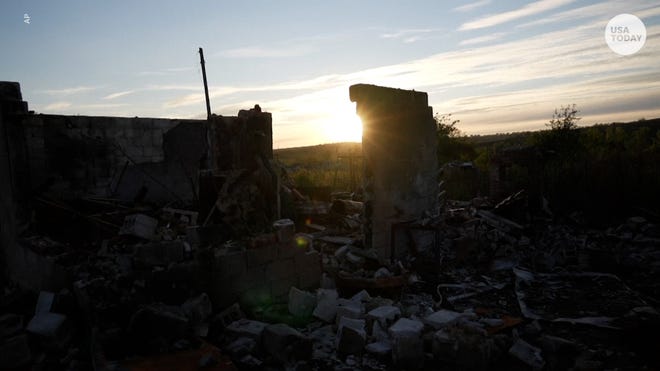Russian President Vladimir Putin announced a partial military mobilization in a televised address to his nation on Wednesday as Ukraine’s counteroffensive continued to push his invasion troops back toward the Russian border.
Putin’s plan, which starts by calling up reservists who previously served in the army, was unveiled hours after Russian-controlled regions in eastern and southern Ukraine announced plans to hold votes on becoming permanent parts of Russia.
Putin had previously avoided the callups in his effort to minimize the effects of the war – a term he rejects in favor of “special military operation” – on the Russian population. But the conflict he had hoped would be completed in weeks has dragged on for seven months with little sign of ending soon.
He blamed the escalation on the West, telling his people the U.S. and its allies were attempting to break Russia “into an array of fatally warring regions and areas.”
TURNING POINT IN THE WAR?As Russia admits defeat in Kharkiv, Ukraine regains land, confidence
What is partial mobilization?
Putin said the partial mobilization means only Russians who are currently in the reserve will be subject to conscription. Initially those brought back into the military will include specialists and others with “relevant experience,” Putin said.
He said that would be enough to overcome “the threats we face, namely to protect our homeland, its sovereignty and territorial integrity, to ensure the security of our people and people in the liberated territories.”
‘NUCLEAR TERRORISM’:Ukraine warns of Russia’s actions after strike near plant
Did Putin threaten nuclear war?
Putin accused the West of nuclear blackmail, blaming Ukraine and its allies for the bombardments near the Zaporozhye nuclear power plant. Ukraine has blamed Russia for the bombings, which international regulators warn could trigger a nuclear disaster. Putin also accused leading NATO countries of suggesting that weapons of mass destruction could be used against Russia.
“Those who are attempting to blackmail us with nuclear weapons must be aware that the prevailing winds may also turn towards their side,” Putin said.
THE WAR IN REVIEW:The week in Ukraine’s war with Russia, including key events explained in 5 graphics
When will the referendum voting take place?
The referendum voting will start Friday in the Luhansk, Kherson and partly Russian-controlled Zaporizhzhia and Donetsk regions. Referendums have been discussed for weeks, but voting had not been expected until November. Ukraine’s military gains likely compelled the Kremlin to move up the voting as an excuse to step up its military effort in those regions.
Former President Dmitry Medvedev, the deputy head of Russia’s Security Council chaired by Putin, said successful referendums would result in “irreversible” redrawn frontiers “irreversible.” Moscow, he warned, could use “any means” to defend them.
Ukrainian President Volodymyr Zelenskyy dismissed the voting as “noise” and thanked Ukraine’s allies for condemning the votes. U.S. national security adviser Jake Sullivan, the US national security adviser, said Russia would manipulate “sham” results to annex the land.
“Let me be clear, if this does transpire, the United States will never recognize Russia’s claims to any purportedly annexed parts of Ukraine,” Sullivan said.
Russia cracking down on deserters
Russia’s lower of house of parliament voted this week to toughen laws against desertion, surrender and looting by Russian troops. Lawmakers also voted to introduce possible 10-year prison terms for soldiers refusing to fight. The laws are expected to win approval of the upper house and Putin.





